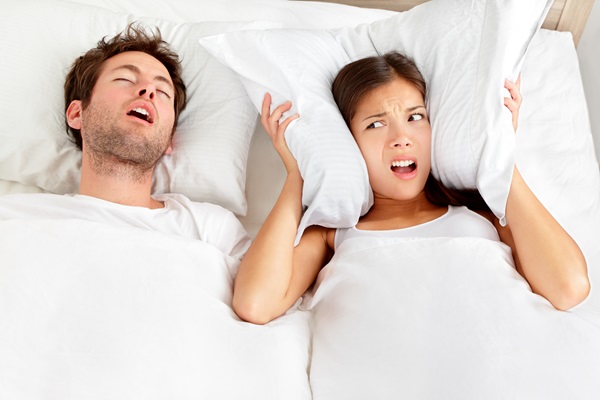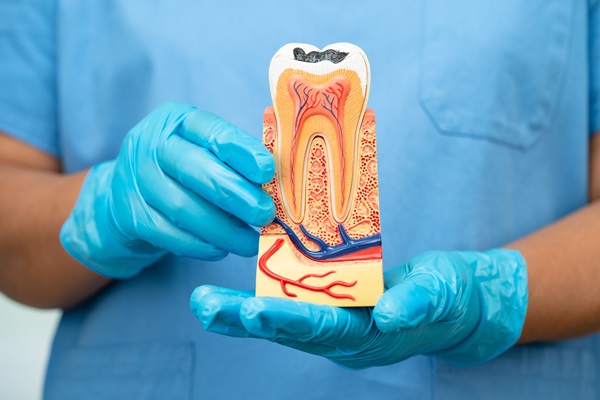Dental Sleep Medicine and Sleep Apnea Treatment

Sleep apnea is a medical condition that a lot of people suffer from. Dental specialists that focus on dental sleep medicine are able to manage and treat sleep apnea through a variety of different methods. Each method is customized to fit the patient’s needs, but some of the most popular methods include the use of oral appliances.
Want to learn more about sleep apnea treatment through dental sleep medicine? In this article, we discuss what dental sleep medicine is, as well as how sleep apnea treatment can be administered. This information is important and can be especially helpful to patients who are suffering from sleep apnea.
Dental sleep medicine and sleep apnea treatment
Outlined below is some important information regarding dental sleep medicine and how sleep apnea can be treated through it. Keep reading to find out more!
What is dental sleep medicine?
Dental sleep medicine is a field of dentistry that focuses on diagnosing, managing and treating obstructive sleep apnea. Within dental sleep medicine, the dental specialists focus on the use of oral appliances to treat the many symptoms that come along with sleep apnea.
Some of the common problems that patients experience when dealing with sleep apnea is snoring, difficulty breathing and disruptive sleeping patterns. With the help of different oral appliances, these symptoms can be remedied and long-term, even treated.
Specialists that study and work in dental sleep medicine are traditionally dentists who have gone on to train further in the field of treating sleeping disorders through dental medicine. A lot of dental sleep specialists are also certified general dentists
Sleep apnea treatment
Within dental sleep medicine, the main focus of sleep apnea treatment is through the use of oral appliance therapy. Oral appliances vary depending on the patient’s needs but the two most common types are tongue-retaining devices and mandibular advancement devices. Both oral appliances are placed within the mouth prior to sleeping, and their goals are quite similar in the sense that they aim to prevent the airway from becoming obstructed.
Tongue-retaining devices: These oral appliances for treating sleep apnea are used less frequently than mandibular advancement devices. They look very similar to a pacifier, but they have a hole in the middle where the tongue is to be placed. The patient’s tongue rests in the hole throughout the night, which allows for a more continuous amount of airflow to reach the back of the throat.
Mandibular advancement devices: The MADs are used quite commonly within dental sleep medicine. They are custom-made appliances that look very similar to mouthguards used in sporting events. With upper and lower pieces, the MAD snaps over each arch of teeth. Small metal hinges on either end keep the lower jaw in a forward position. This forward position helps keep the airway open, which prevents obstruction.
Get started with dental sleep medicine today!
Questions and concerns regarding dental sleep medicine and how it can be used to treat sleep apnea should be addressed by a dental professional. Reach out to our office today so that we can help you.
Request an appointment here: https://beautifulmouth.com or call Beautiful Smile, LLC at (856) 346-8900 for an appointment in our Gibbsboro office.
Check out what others are saying about our dental services on Yelp: Do I Have Sleep Apnea in Gibbsboro, NJ.
Recent Posts
Sleep apnea and dentistry have a lot of crossover that many are surprised to hear. The oral cavity is often what causes sleep apnea, which makes a dentist an expert at detecting, diagnosing and treating this common condition. Without treatment, patients are at risk of loss of oxygen and long-term damage to the oral cavity.…
Dental sleep medicine can help with snoring and obstructive sleep apnea, which are two common sleep problems. Snoring is one of the primary symptoms of obstructive sleep apnea, but not everyone who snores has it. However, snoring alone can cause problems for individuals and their sleep partners by interrupting sleep. While the Continuous Positive Airway…
A preventative dentistry question people commonly have is, "what stains teeth the most?" We will look at some of the foods and beverages that are teeth staining to help you avoid these and keep a white smile longer. There are lots of different foods that can stain teeth. Some are well known and obvious. Blueberries, for…
Dentists recommend root canal treatment for damaged, diseased, or infected teeth. The treatment aims to eliminate bacteria within the tooth's pulp and save a patient's natural teeth. After a tooth matures, it no longer requires the pulp for nourishment. The dentist removes the infected pulp, disinfects the inside, and seals it to prevent reinfection.Decay and…


